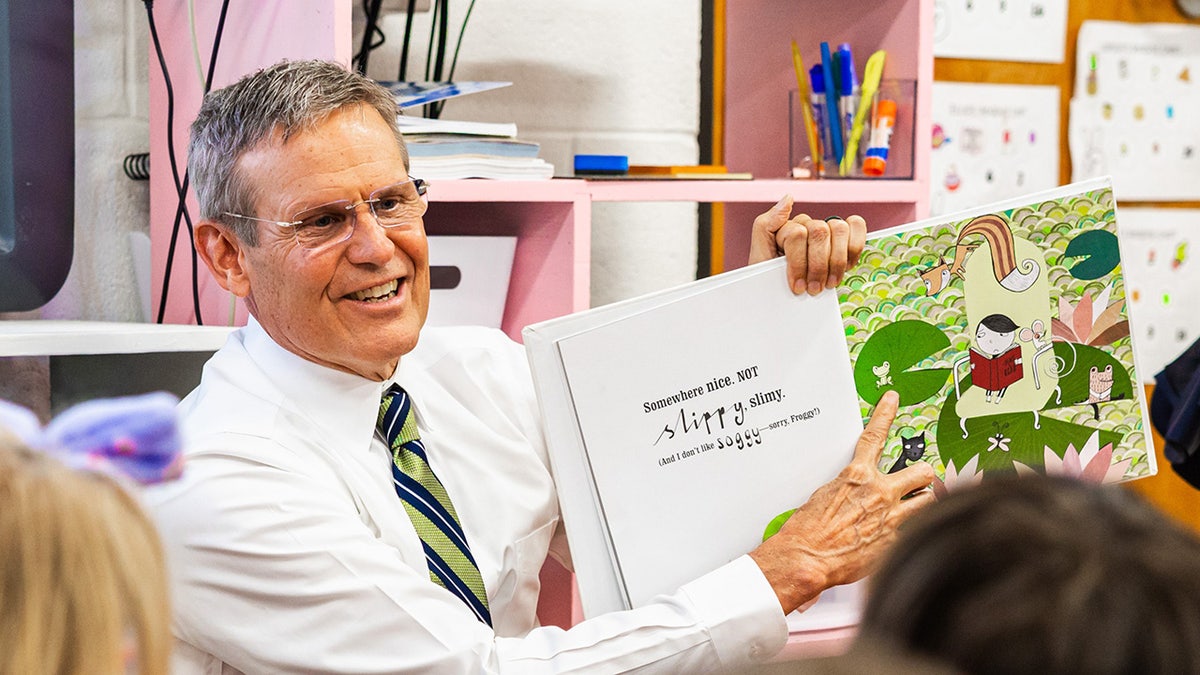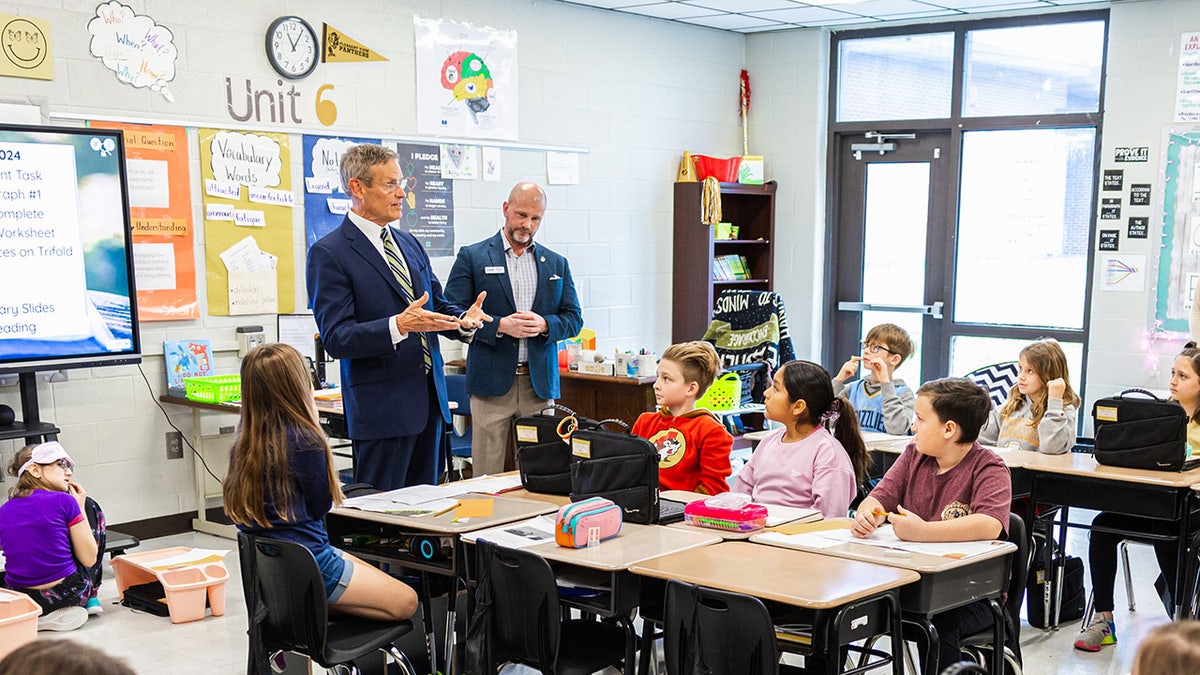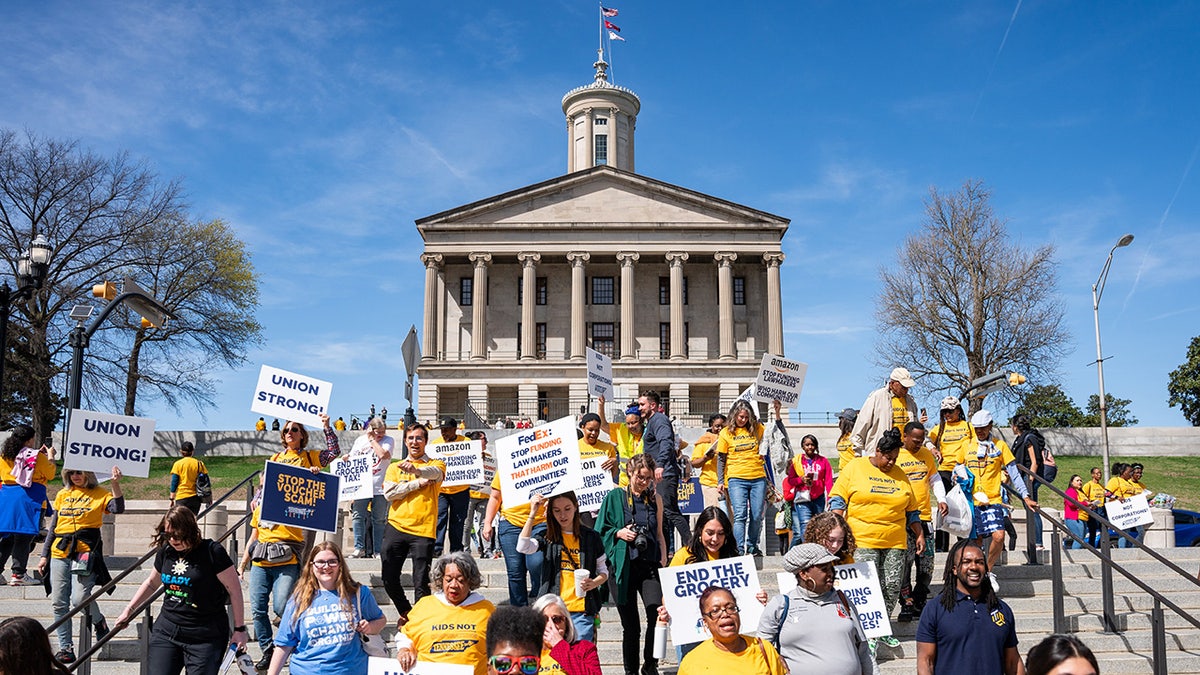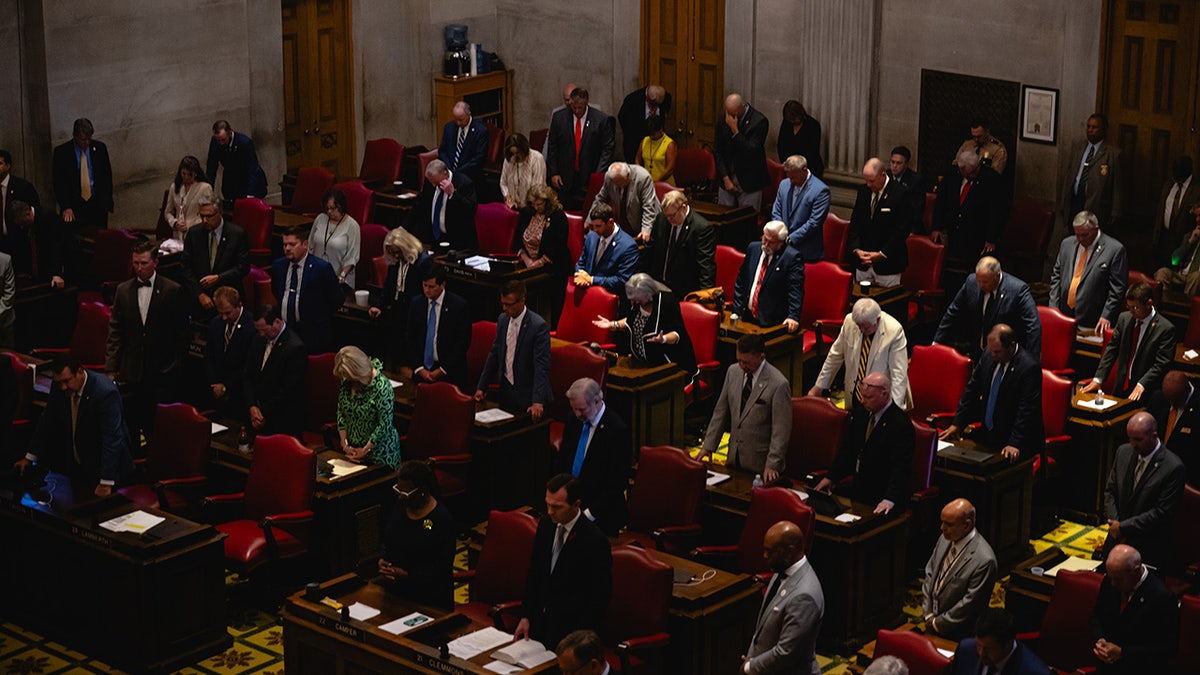Tennessee Gov. Bill Lee outlines school choice, voucher program proposal gaining momentum in state legislature
Tennessee Gov. Bill Lee, a Republican, spoke with Fox News Digital about his school choice proposal advancing in the state legislature as parental rights remain a key 2024 election issue.
Tennessee Gov. Bill Lee says his state is joining what he views as a "revolution in America right now around school choice," as a $400 million bill to overhaul public school achievement testing and implement universal school choice advances in the state legislature.
Lee, who is also president of the Republican Governors Association this term, said the issue of school choice resonates nationally beyond just Tennessee during the 2024 presidential election year.
The governor explained in an interview with Fox News Digital that school choice, to him, is "really about freedom," noting how regarding matters of COVID-19 vaccines, books in public school libraries and classroom instruction, "parents on the left and right have very strong opinions about what that ought to look like."
"The only way to resolve those differences are [is] to give parents the choice so that they're not resolved to live with whatever, you know, some teacher or some classroom or some library or some educational school district believes that they ought to be," Lee said. "Most all of us Americans, not just elected officials, recognize that education is one of the top priorities when it comes to issues and what Americans care about."
TENNESSEE SENATE PASSES $2B BUSINESS TAX CUT IN BID TO DODGE LAWSUIT

Tennessee Gov. Bill Lee seen reading to schoolchildren during a recent classroom visit. The governor is supporting school choice legislation advancing in the state legislature. (Office of the Governor of Tennessee)
"This is not a choice between school choice and public schools. We have a strong commitment in this state toward the improvement of our public school system. The vast majority of our kids are going to be educated in our public schools, even years after a choice initiative like our proposed legislation goes through," the governor added, responding to criticism that the proposal would divert resources from Tennessee's underfunded public schools. "We need to have the best public school systems. They need to be funded well. They need to be innovative and creative and part of the part of the legislation."
Lee said he’s observed an increased understanding among conservatives – but also from Americans more generally – that parents should be given the ability to impact what happens in their children’s education. He credited the pandemic, when remote learning gave parents insight into what gender and racial ideologies were included in public school curricula, as well as the resulting learning loss from keeping kids out of classrooms, as parents seek options to play catch-up several years later.
"I do believe there is a push in this country, especially among conservatives, for understanding how important freedom is – freedom in education, freedom in health decisions, freedom in what we do for our employment," he said. "We talk a lot about Tennessee being a place where people have access to opportunity and security and freedom. And as it relates to education, that is an Education Freedom Scholarship Act. And that's what we are really hopeful passes in this state in the next few weeks."

Tennessee Gov. Bill Lee told Fox News Digital his universal school choice proposal is not intended to neglect the need to support public schools in the state. (Office of the Governor of Tennessee)
Despite some objections from state Democrats, the framework of Lee's proposal, included in House Bill 1183, advanced through the state House Government Operations Committee and was recommended to move forward to the state House Finance Subcommittee last week. As Lee enjoys a Republican super majority in both the Tennessee House and Senate, he said he expects a version of the legislation to pass after the final provisions are ironed out between chambers.
The current version of the bill in the House would increase payment for teacher health insurance from 45% to 60% – a measure intended to help rural districts retain quality teachers, as well as provide a $75-per-student infrastructure payment toward school facilities and maintenance and increase state funding for students in small and sparsely populated school districts, The Tennessean reported. It also allows for teacher and principal evaluations and state-mandated student testing to happen less often.
A corresponding version of the legislation in the state Senate, SB 0503, is estimated to cost about $250 million less than the House bill. But the upper chamber’s version would primarily focus on creating the governor's Education Freedom Scholarship program and opening inter-county school enrollment. It excludes the House bill’s provisions on teacher health insurance, evaluations and changes to testing requirements.

Educators and various organizations from across the state convened outside the Tennessee Capitol to rally against Gov. Bill Lee's school voucher program on March 12, 2024, in Nashville. (Seth Herald/Getty Images)
As the governor noted, school choice initiatives passed in states like Arizona, Iowa, Oklahoma and Arkansas last year and more recently in Wyoming and Alabama. It’s also gaining momentum in Kentucky, North Carolina and Georgia, Lee said, and Florida and Indiana have multiple stages of school choice. Though it varies by state, Lee said they have the same premise that "the parent knows best."
TENNESSEE GOV. BILL LEE ANNOUNCING STATEWIDE SCHOOL CHOICE PROPOSAL: 'THERE IS MORE WORK TO DO'
In states like Texas, Lee said, it has cost candidates elections to oppose school choice.
Tennessee has one of the fastest-growing populations and one of the top-performing economies among all 50 states in recent years, Lee acknowledged, stating how the influx of families weighs in on school choice.
"We need to give parents more choices. And when we do, children are going to have much more options to be successful. And at the end of the day, that's what this is all about," Lee said. "It's not really political, even though it's a very conservative issue. But hey, look at the states that have Democrat governors are passing that choice now as well, because Americans are beginning to believe that this is about children and the future of our country. And we ought to do everything we can to challenge the status quo and get it and get a better outcome."

A construction worker watches demonstrators march in downtown Nashville in protest of Gov. Bill Lee's school voucher program on March 12, 2024. (Seth Herald/Getty Images)
Lee said he first proposed school choice legislation five years ago during his first legislative session that passed narrowly for a few of the state’s largest counties and has been working to expand it since.
He announced the statewide initiative in November, an atypical move to provide more time before the start of legislative session for stakeholders and lawmakers from both sides of the aisle to weigh in. Long before becoming governor, Lee said he did nonprofit work with an at-risk inner-city youth program. There he met one child whom he met with weekly for many years.
Lee said the child, whose mother was in prison and who never knew his father, was failing every subject when he first met him. Over time, Lee said, the boy improved and Lee worked with the child and his grandmother to find him a charter school option outside of the neighborhood he grew up in.
"The fact that it's an election year and that Republican primary voters by an overwhelming margin approve of school choice, it impacts what's happening. Legislators understand that they know their voters want this. I think that's one of the reasons you see such a move toward it. It's not just an ideological thought," Lee said. "For me, it's much more than that. It was a practical reality that I saw 15 years ago. But at the same time, it's an issue that if you're a representative, and you're representing constituents, your constituents want choice."

State House representatives bow their heads in prayer at the Tennessee Capitol during a school safety special session on Aug. 21, 2023, in Nashville. (Jon Cherry/Getty Images)
Just short of the one-year anniversary of the March 27, 2023, shooting that killed three children and three adults at a private Christian school in Nashville, Lee said that though this legislation does not focus on the issue, Tennessee "became sadly and tragically aware of just how important it is that we provide security for our schools, and our legislature responded, in a way that that has made our schools safer."
"And I suspect public safety, and especially around kids in schools, that conversation should and will never stop in the state," he added, noting how the state legislature passed a sweeping bipartisan school safety legislative package last year that provided funding for school resource officers in every school, and there have been continued add-ons that have strengthened school alarm systems.
In the aftermath of the Covenant School bloodshed, the Biden White House backed three Democratic state lawmakers who became known as the Tennessee Three who joined demonstrators in interrupting a legislative session at the state Capitol to protest about gun control.
One of those lawmakers expelled and reinstated amid last year’s controversy, Rep. Justin Jones, D-Nashville, has recently taken issue with a provision in the House’s version of the governor’s school choice proposal that would exclude non-U.S. citizens from the Education Freedom Scholarships voucher program, The Tennessean reported.
CLICK HERE TO GET THE FOX NEWS APP
Jones cited the U.S. Supreme Court decision in Plyler v. Doe that prohibits states from withholding school funding for educating children of illegal immigrants. Rep. Scott Cepicky R-Culleoka, said the bill would allow any student regardless of immigration status to enroll in any public school, but lawmakers can still set limiting factors on who can receive a "public benefit," such as Lee’s voucher program.






















